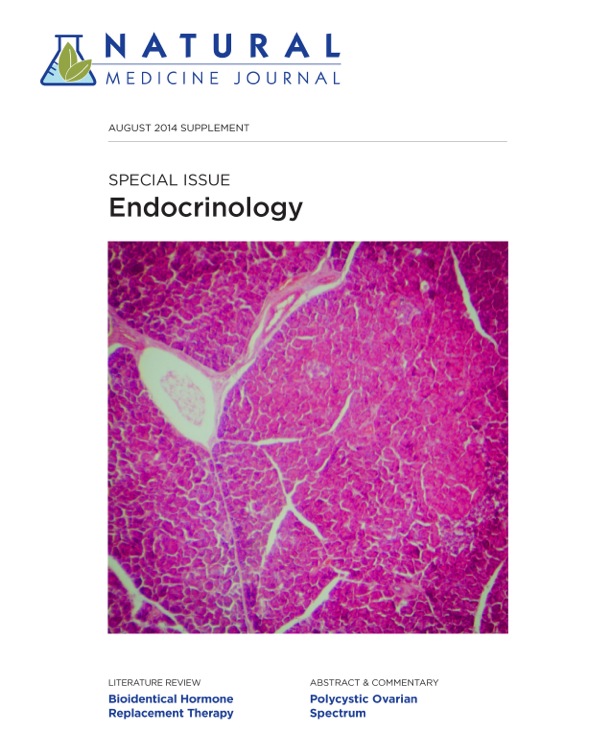In a study of 99 recipients of egg donation at the University of Southern California Fertility Center, Los Angeles, vitamin D deficiency was associated with a 50% reduction in pregnancy and live-birth rates in recipients of donor eggs compared to patients who had adequate vitamin D levels.
Reference
Rudick BJ, Ingles SA, Chung K, Stanczyk FZ, Paulson RJ, Bendikson KA. Influence of vitamin D levels on in vitro fertilization outcomes in donor-recipient cycles. Fertil Steril. 2014;101(2):447-452.
Design
Retrospective cohort study
Participants
A diverse population of 99 recipients of egg donation at the University of Southern California Fertility Center, Los Angeles (53% Caucasian, 20% Asian, 16% Hispanic, and 7% African American). Each recipient was matched to a unique egg donor. Consideration and statistical adjustments were made for potential confounders such as donor and recipient age, recipient body mass index, race, number of embryos transferred, and embryo quality.
Study Intervention
Serum vitamin D levels [25(OH)D] were assessed at baseline and categorized based on conventionally accepted reference ranges for vitamin deficiency (<20 ng/mL), insufficiency (20-30 ng/mL), and normal or replete (>30 ng/mL).
Primary Outcome Measures
The primary measure was clinical pregnancy, which was defined by sonographic presence of cardiac activity at 7 to 8 weeks of gestation. A secondary outcome measure was the live-birth rate.
Key Findings
Of the 99 study participants, 35% were replete, 38% were insufficient, and 26% were deficient in vitamin D. Adjusted clinical pregnancy rates were 78% in vitamin D–replete recipients and 37% in vitamin D–deficient recipients (P=0.004). Live-birth rates were 31% among vitamin D–deficient recipients compared with 59% among vitamin D–replete recipients. There were no statistically significant differences in adjusted clinical pregnancy and live-birth rates among recipients who were deficient in vitamin D compared to those who were sufficient in vitamin D.
Practice Implications
In this study, vitamin D deficiency was associated with a 50% reduction in pregnancy and live-birth rates in recipients of donor eggs compared to patients who had adequate vitamin D levels. Vitamin D is a precursor to a fat-soluble secosteroid hormone, 1,25(OH2) vitamin D, with pleiotropic effects on a wide variety of intracellular regulatory reactions, including those of the reproductive system.1 Vitamin D has been shown to have immune-modulating and antiinflammatory effects. Previous studies have shown that vitamin D deficiency is associated with insulin resistance, hyperandrogenism, polycystic ovarian syndrome, and pregnancy complications such as preeclampsia, infertility, and recurrent miscarriages.2-4 Numerous studies on the association of serum and follicular vitamin D status on in vitro fertilization outcomes have been conducted and demonstrate that women with replete vitamin D levels have higher pregnancy rates than women who are deficient in vitamin D.5,6
Because previous studies have not shown a correlation between vitamin D status and embryo or oocyte quality, the authors used oocyte donor recipients to test their hypothesis that the effects of vitamin D are mediated through the endometrium via intracellular signaling between the embryo and the endometrium. The results of the study demonstrate that vitamin D status is more closely implicated in endometrial function related to implantation, and not oocyte quality. This is supported by evidence that the active form of vitamin D, calcitriol, binds to the vitamin D receptor in the endometrium to target genes (eg, Hox gene 10A) that are necessary for embryo implantation and placentation.7,8 Furthermore, calcitriol has been shown to decrease inflammatory cytokines like colony stimulating factor 2, interleukin (IL)-1, IL-6, and tumor-necrosis factor that are implicated in early pregnancy loss.9 More research is warranted to expand on what we know about vitamin D and endometrial function.
In this study, vitamin D deficiency was associated with a 50% reduction in pregnancy and live-birth rates in recipients of donor eggs compared to patients who had adequate vitamin D levels.
While this study adds to the growing data that vitamin D may play a role in fertility, further studies are warranted to demonstrate the effects of vitamin D therapy and repletion on pregnancy rates. Clinicians who are providing preconception counseling and treating infertile women should assess vitamin D levels and treat deficiencies with vitamin D supplementation, not just for overall health benefits and chronic disease risk reduction, but for improving fertility, pregnancy health, and live-birth rates.
This article was a part of the August 2014 special Natural Medicine Journal
issue on endocrinology. To see the rest of the special issue, click here. 






